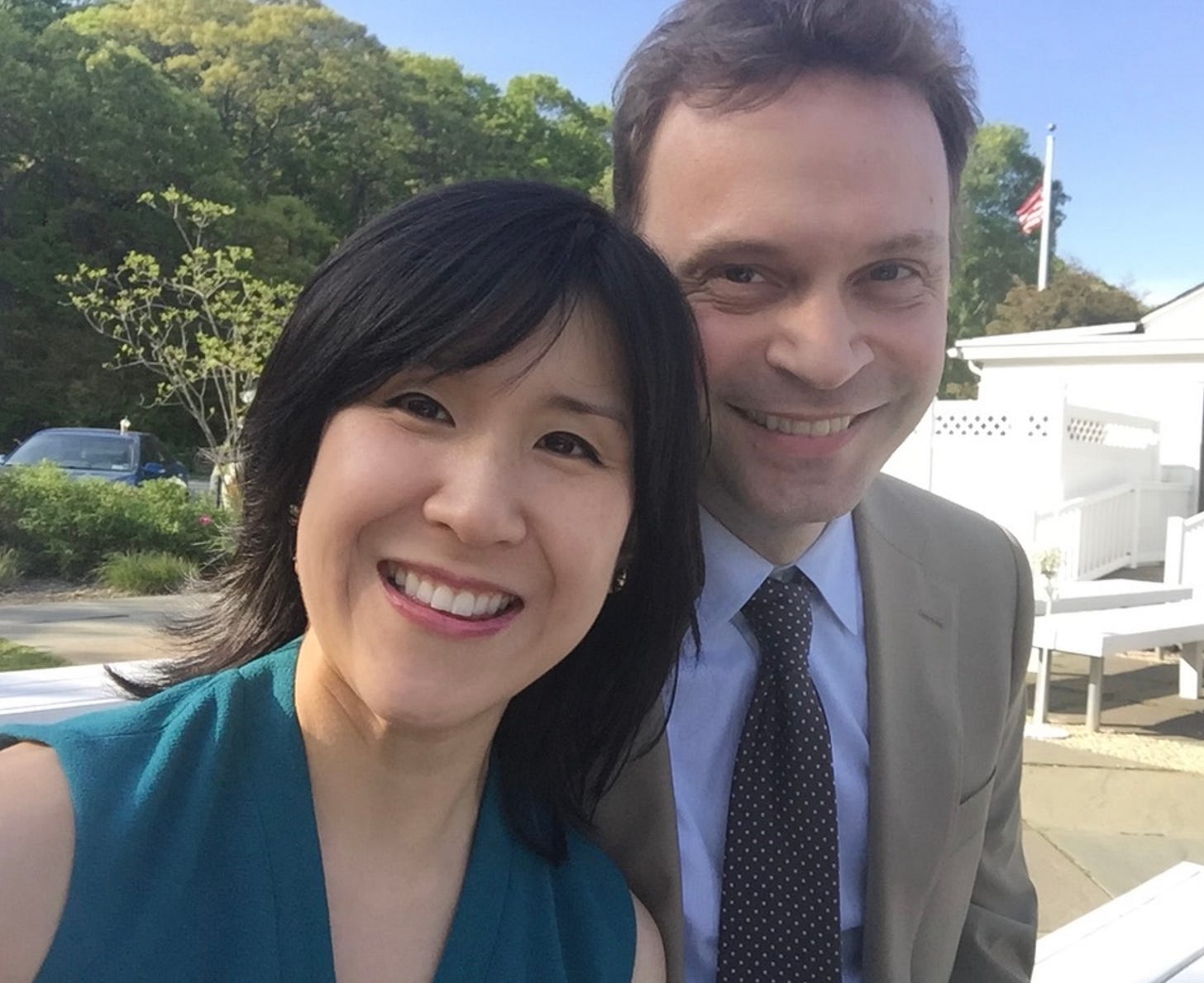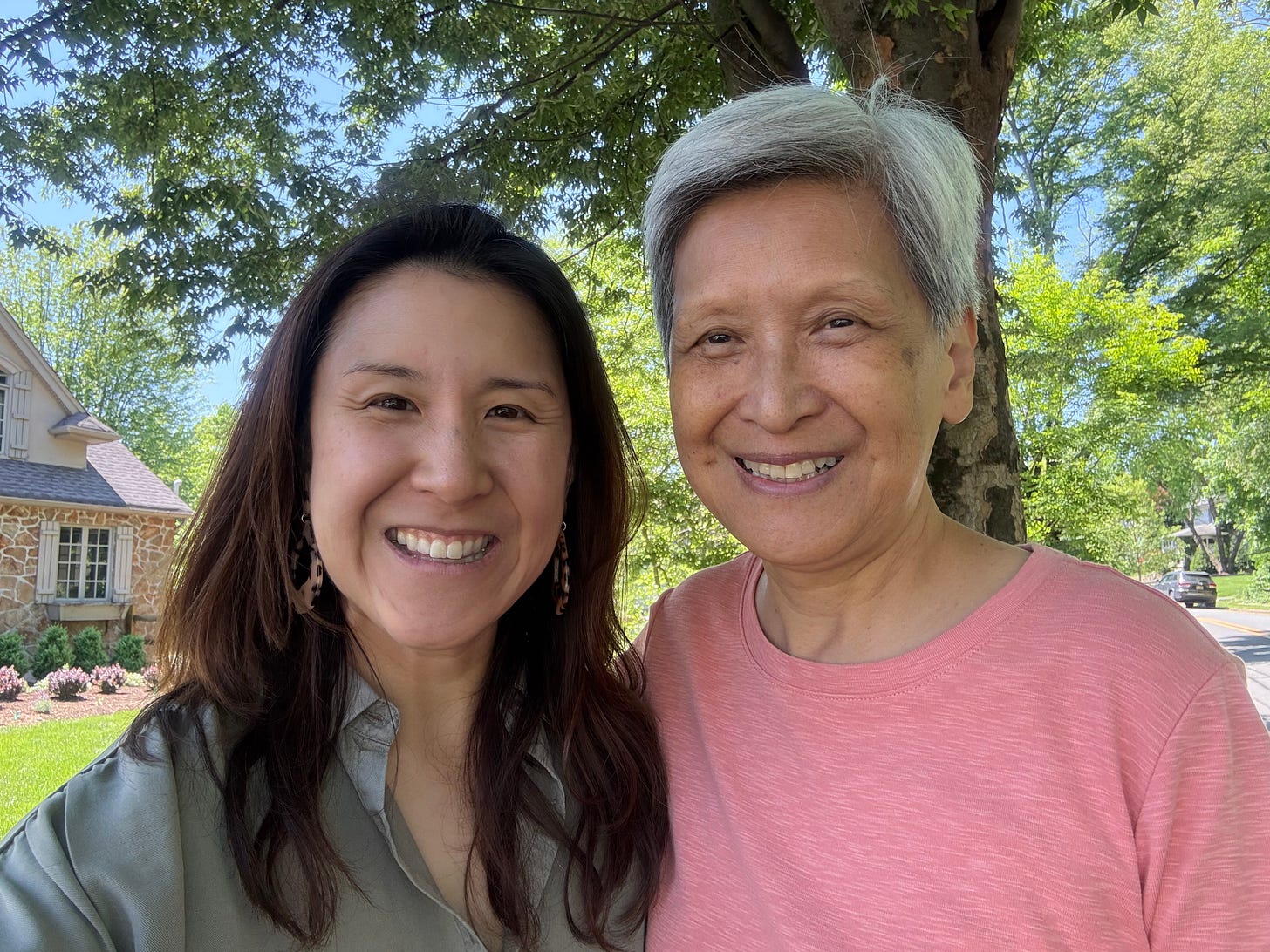The 6 Best Leadership Lessons I Learned Outside the Boardroom
If you pay attention, there are wise teachers all around you.
I’ve spent my life chasing growth—first in my career, now in my personal development. But the most transformative lessons didn’t come from an MBA course, a boardroom, or a boss.
They came from my husband, my kids, my brother, my parents—even my plants and my paintings.
When you start paying attention, wise teachers are everywhere. And the lessons they offer can change how you lead, work, and live.
Let me share my favorite ones with you.
The 6 Best Leadership Lessons I Learned Outside the Boardroom
1. Listen, really listen (my husband)
When my husband and I first met, I had just been promoted to Vice President and I was an eager beaver in everything I did.
I wanted to be first in line, first with the answer, first with the win. Of course, that made others feel unheard—including my husband.
Thank goodness he had the hard talk with me with care and clarity. Without it, I would have never become a good listener.
I’m still more eager than your average 40+ recovering-high-achiever, but I’ve long since learned the power of full presence and how that invites richer conversations, more trust, and ultimately, stronger relationships.
Action: Before you go into your next conversation, take a minute to close your eyes and imagine yourself listening, truly listening to the other person. Setting an intention is an excellent way to help you be more present.
2. Perfect is the enemy of progress (my daughter)
When my daughter started crafting, she worked like a tornado and produced piece after piece: a backpack, a dollhouse, a vending machine.
My instinct was to correct her crooked cuts and messy seams. She looked at me, smiled, and said: “No Mommy, it doesn’t have to be perfect.”
In those moments (and there were many), I’d feel a bit small for critiquing my creative and ambitious daughter, and I’d feel fear that my perfectionist tendencies were going to limit her as I felt they at times limited me.
There’s a time to seek excellence—but not when you’re learning or experimenting.
When you default to perfectionism, you run the risk of overthinking, over-engineering, and overworking. In short, you drain yourself of energy and joy and you might block your progress, too.
Action: When you feel yourself seeking to perfect something, first ask yourself, (1) Is now the time to aim for excellence? and then (2) Is my approach for improvement the best way to move us forward or is there another way?
3. Lean into your obsessions (my son)
Obsessions are a sign that you care about something at an unreasonable level. It’s intrinsic, and it often feels unstoppable. You might not know where it comes from, but you know where it takes you in constant pursuit.
My son has had a lot of trains since he was 2 or 3. It has been deep, unrelenting, and not specific to where lived (in NYC or in the suburbs), how old he is (now in his teens), or what his friends are into (none of them have loved trains the way he has).
While his passion has somewhat diminished, it still comes and goes like a hurricane. When it sweeps in, it’s significant, consuming, and makes everything else dim in comparison.
Because of his obsession, he has created Roblox games and studied the entire NYC MTA train system.
I never felt that level of obsession in my career—until now with coaching, art, and writing.
When you find work that overlaps with your obsession, you are always engaged, always energized.
Action: If you have an obsession, consider if there are ways for you to make this your work and income-earning activity.
If you don’t have an obsession, start to explore and see if you can find one. Don’t be surprised if your obsession has nothing to do with what you do today. That might be one reason you’ll have endless energy for it because it’ll be new and exciting for years to come.
4. Know yourself before you lead others (my mom)
My mother was a geriatric nurse before she retired just over a decade ago. She was exceptional.
Patient’s families sent gifts and thank you cards lauding the quality and importance of her care in their loved ones’ final years and moments. They called her an angel.
My mom loved interacting with her clients and their families. Which is why when she was offered promotions to become Director of Nursing, she was quick to decline.
She knew that more money, a higher title, more authority would never make up for the reduced contact with the patients, the people she enjoyed serving.
I couldn’t understand it, but as I progressed in my career, I finally got it. You shouldn’t lead until you know what makes you tick.
As my mom modeled, there are many ways to lead and make an impact. The best way to contribute is to be true to yourself.
Action: Before you assume that a promotion is the right next step, do some self-reflection and have conversations with leaders who occupy those seats. Be honest with yourself, do you want to manage people and shift the nature of your work. And if it isn’t right for you, celebrate that instead of seeing it as a failing. The win is choosing the work that is the most fulfilling for you.
5. When outgrown your surroundings, it’s time to “replant” yourself (my plants)
When I repotted a plant a few years ago, the roots were packed so tight they couldn’t breathe.
This happens to humans as well.
Perhaps your skills have grown beyond your current scope. Or an activity that used to give you energy is starting to drain you.
Sometimes, you simply need to make a change to your routine or how you approach your life or work. But sometimes, it’s a sign that you need to make a bigger change. You need more space, new nourishment.
Don’t be afraid to make a shift and find a new home. It might feel daunting, but it might also be the exact reset you need to get you excited about your next chapter.
Action: Do an energy and engagement assessment, similar to the one that Bill Burnett and Dave Evans recommend in Designing Your Life. But broaden the scope to include your surroundings and activities outside of work. And then experiment with smaller changes to see if you can experience a shift. If don’t see a change after a more extended period of time (perhaps a month or two), it might be time to make a bigger change.
6. Starting over is just another chance to get it right (painting)
Wiping away your work is essential in oil painting. All the masters did it.
For me, it felt super scary to wipe away my work as a beginner again this past year.
“What if I couldn’t recreate the work again? What if my next attempt wouldn’t be as good as my first? What if I’d never make it good enough?”
What these fears didn’t allow me to see was the simple truth:
Until I wiped away the less-than-stellar work, I couldn’t produce anything better. You have to make space for your improvement.
Now, I trust the process. I know I’ll eventually get it right.
Action: Is there something in your work or career that doesn’t feel right? Instead of plowing forward, take time to reflect. Consider diving in deeper. Exploring this with a colleague or coach may help you get past your fears and more quickly explore potential paths.
These lessons didn’t come from a promotion, a title, or a strategy session.
They came from everyday life—and they’ve shaped me into a better leader, coach, and human.
Leadership wisdom is everywhere if you’re willing to listen for it.
If this resonated with you, share it with someone who’s growing their leadership too.
And if you’re ready for deeper, personalized coaching, I have one spot open this fall. Book a 15-minute complimentary Strategy Call.
Thank you for joining me this week.
May you lead without limits,










I can relate to your mother because as a nurse for 45 years, I know it is what God wanted me to do and I have learned so much from every nursing experience I have had over the years. Here I am at 85 still taking care of a patient five days a week and enjoying every minute of it because it gives me contact in conversation with other people Instead of staying home watching soap operas, like most people, my age. But I still find the need to fulfill my desire to write burning away at my soul.
so very good ty!!! As a pastor i just shared this with my staff